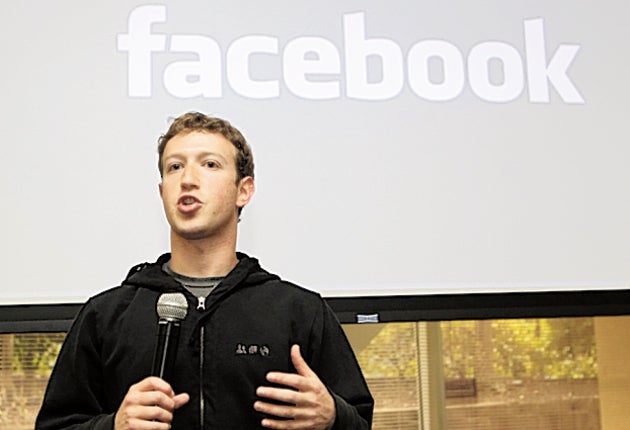Facebook bows to pressure to simplify privacy controls

Facebook, the world's most-popular social networking site, last night backed down and introduced simplified privacy controls after a storm of protest from users.
Changes made to the site earlier this year led to allegations that the company was exploiting personal data for commercial gain and led to formal complaints from privacy groups.
Prominent technology bloggers publicly deleted their accounts, and the European Commission described the changes as "unacceptable".
Last night Facebook's founder Mark Zuckerberg admitted the privacy settings on the site had "gotten complex" for users and said the company would in future offer a one-stop shop for privacy in response to user concerns.
The new system will offer users one privacy page with a list of all their applications and a choice of three settings for each. As with the changes made in December, users will be able to choose to share their applications with just friends, friends of friends or everyone.
"We needed to simplify controls," he said. "We've focused on three things: a single control for your content, more powerful controls for your basic information and an easy control to turn off all applications." People will still be able to access existing settings.
Mr Zuckerberg said that developers had "worked weekends, camped out in the conference centre" in order to overhaul its privacy settings.
"The number one thing we've heard to that the settings have gotten complex and hard for people to use. It is something we take very seriously."
Mr Zuckerberg said Facebook had evolved from a very basic system when it was launched in 2004 to the 400 million-users site it is today.
"When we started Facebook, we built it around a few simple ideas. People want to share and stay connected with their friends and the people around them. When you have control over what you share, you want to share more. When you share more, the world becomes more open and connected," he said.
But since then the site has rolled out hundreds of new features and, alongside them, a raft of privacy settings.
The biggest charge levelled against Facebook was that users simply were not fully aware of changes that are regularly made about who can see personal information, which search engines can catalogue it, and which companies can advertise products to users based upon it.
At the end of last year, certain categories of data belonging to over-18s were made visible to "everyone" (Facebook and non-Facebook users) by default. This was presented in a benign, socially inclusive way, but it did not take long for concerned users to urgently forward instructions to their friends explaining how to revert these changes.
Then Facebook introduced an "Instant Personalisation" service which pushed things too near the edge. Facebook described it as "magical", but the wider consensus was "creepy".
It meant that certain websites were able to identify Facebook users and personally welcomed them on their first visit – unless they had specifically turned the option off the option within Facebook.
Join our commenting forum
Join thought-provoking conversations, follow other Independent readers and see their replies
Comments